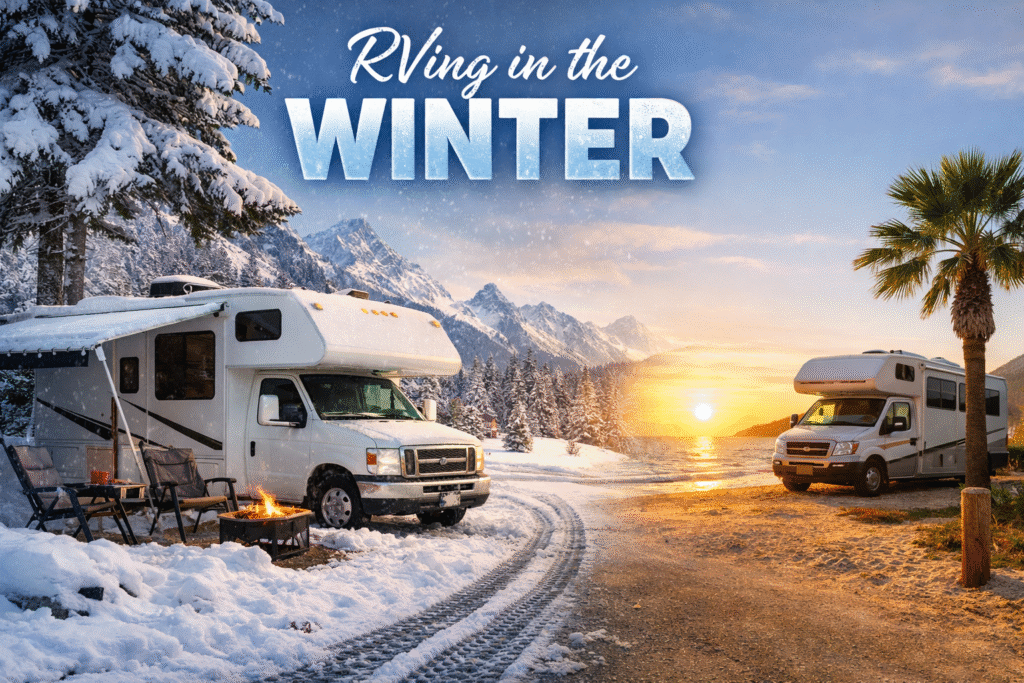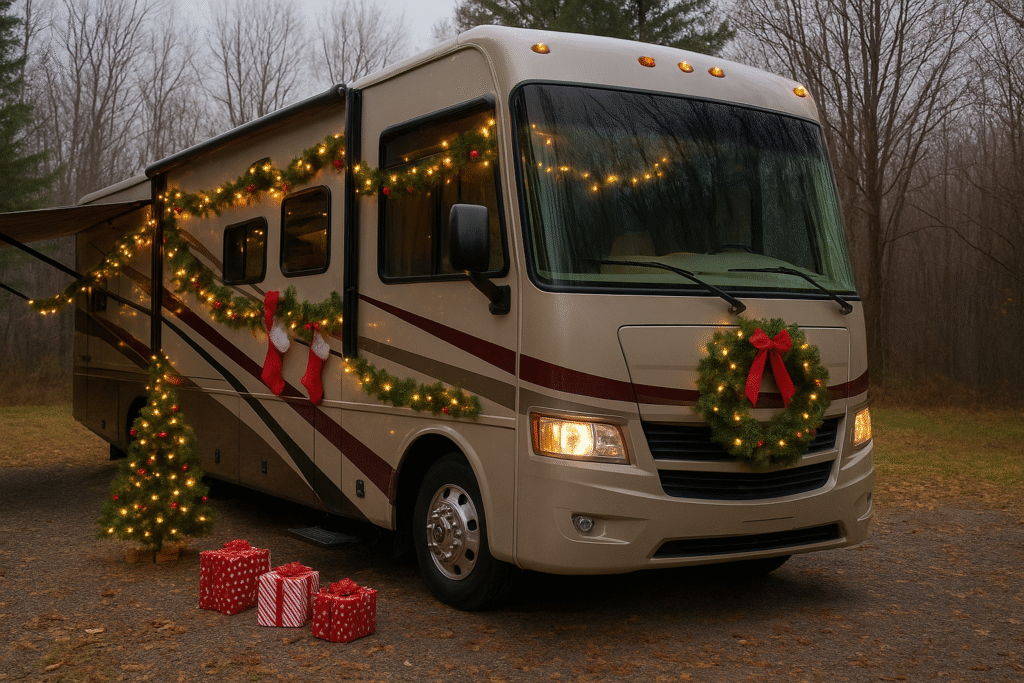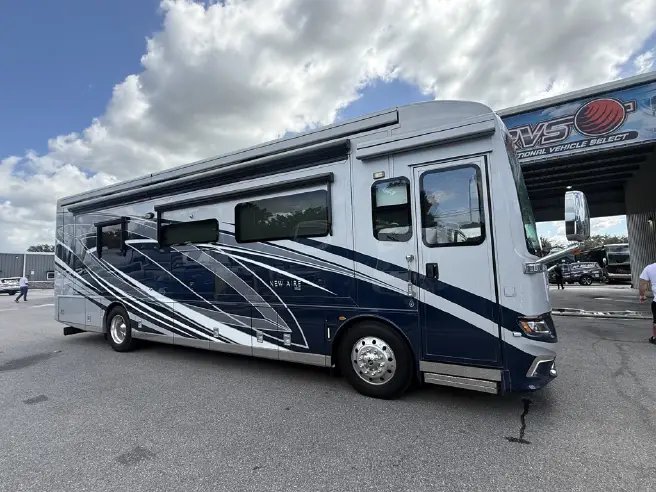The Atlantic hurricane season runs from June 1 to November 30 each year, and it’s during this time that the chance for storm development in the Gulf of Mexico, Caribbean Sea, and the Atlantic Ocean is at its highest. RV enthusiasts living in or traveling to Florida or any of the other Gulf Coast and Atlantic states in this timeframe should take steps to ensure that they and their loved ones are safe in the event of a storm. This requires some forethought and planning.
You should plan to weather a hurricane in a brick-and-mortar location – which is the safest place for you to be in high winds and driving rain, not in your RV. Once you have shelter in mind, you can then plan to store your RV in a high and dry location, to protect it from damage.
While it’s never a good idea to try and ride out a hurricane in your RV, you may decide to evacuate with your rig or, worst case scenario, need to use your RV as temporary housing if your home suffers damage from a storm. In those cases, it’s best to have a storm plan in place so you and family can be safe.
Here are just some of the things you should do to properly prepare to use your RV before and after a hurricane:
- Plan out an evacuation route – If you need to evacuate, know which route you will take in advance. As you’re planning, consider the height of your rig and whether there are any structures such as bridges or overpasses that might be too low for your vehicle to comfortably fit under. Even if you don’t have a tall RV, also consider whether your chosen route will allow you the room necessary to navigate properly. For example, if you have a fifth wheel and plan to take a route with narrow roads, know that you may not have many opportunities to turn around as needed.
- Prepare an emergency kit – Just like you would prepare an emergency kit in your home before a storm, you should have one for your RV as well. A kit should include non-perishable foods, water, and medications. Don’t forget other items such as first aid essentials, batteries, and matches. Also pack important documents, such as vehicle registration, auto and insurance policies, and others. And remember to keep your documents in waterproof cases.
- Fill up the gas and water tanks – Whether you’re preparing to evacuate in advance of a hurricane landfall or using your rig as temporary housing, having plenty of water and gas is incredibly important. Unfortunately, both gas and water can become scarce in a storm situation, so take every opportunity available to you to refill your tanks, propane tanks included.
- Never drive through standing water – Hurricanes can cause significant flooding, from both extensive rainfall and storm surges, so standing water may be an issue you’ll have to contend with. Driving through floodwaters could cause your vehicle to stall out, get swept away in moving water, or sink into collapsed roadways, so it’s best to avoid driving through standing water at all costs.
It’s easy to brush off hurricane warnings and not take storms seriously, especially if you’ve lived through multiple hurricanes in the past. But it’s always best to err on the side of safety when it comes to hurricane preparations and make sure that your RV is ready to serve you as needed.
Have questions? Contact us today!




